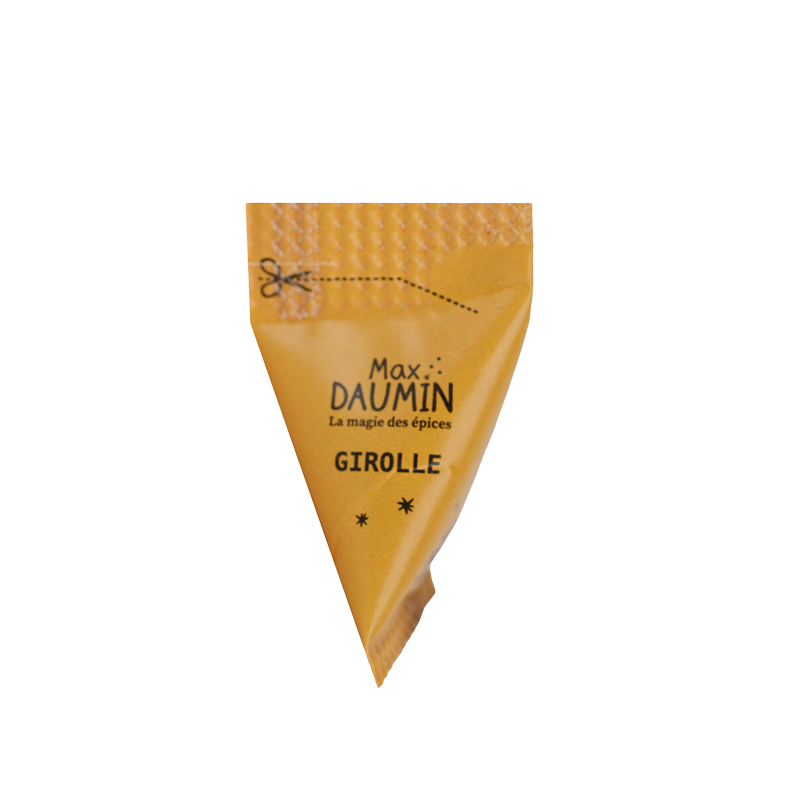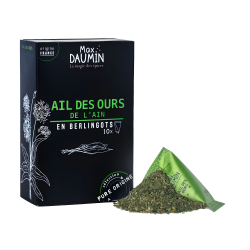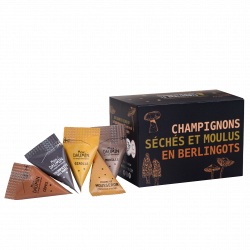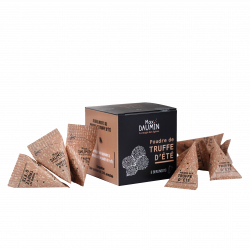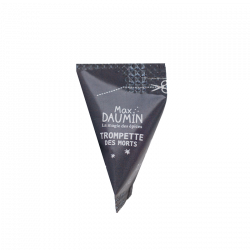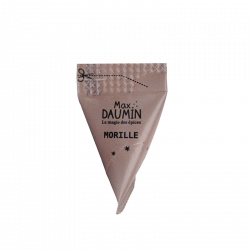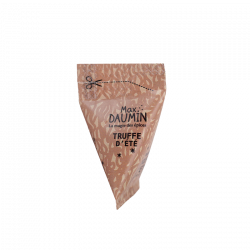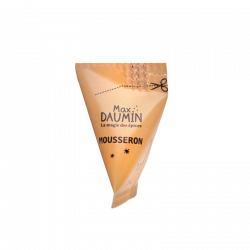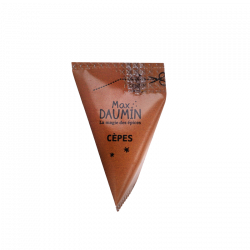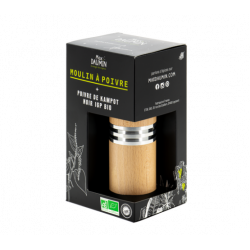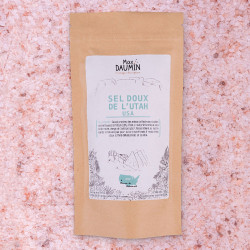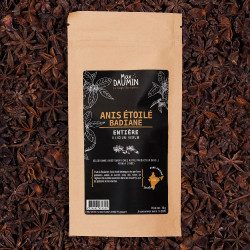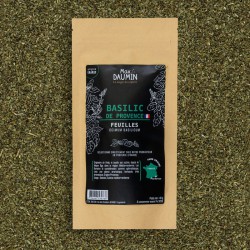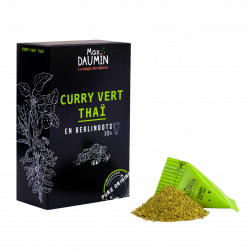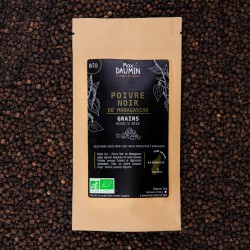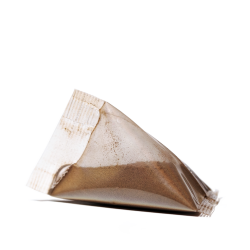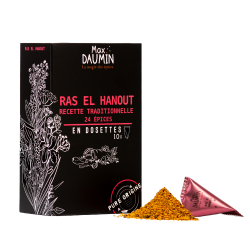- New
Berlingot Girolle
Made from dried chanterelle mushrooms that are finely ground, Girolle powder has a silky texture and an enticing aroma. Packaged in a convenient pyramid-shaped pouch, this practical format makes it easy to measure out the desired amount, ideal for flavoring sauces, fresh pasta, cream soups, or white meats. Its subtle taste evokes hazelnuts and the forest after rain, adding a refined touch to any dish.
Available here in bulk bags of 6, 12, 24, or 48 berlingots, you can also find this berlingot in our Mushroom Assortment Box.
-
Net weight : 1,8g
-
Composition : Cantharellus cibarius
-
Dimensions : 5cm x 3cm
-
Recyclable box and berlingots : Sorting paper / cardboard


History
Plant & perfume
Known by its scientific name Cantharellus cibarius, the chanterelle mushroom is one of the most iconic mushrooms in French cuisine. Listed in culinary works since the 18th century, it was highly prized by kings and nobles for its delicate flavor. Foragers have always sought it out in coniferous and deciduous woods, where it grows in golden colonies. A symbol of abundance and autumnal indulgence, the chanterelle occupies a special place in European culinary heritage.
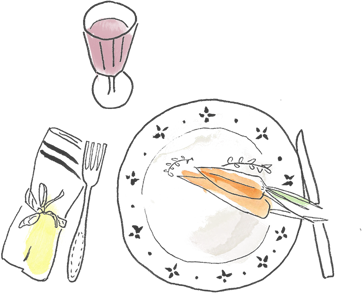


Benefits
Cooking and Virtue
Chanterelle powder blends perfectly into many dishes thanks to its mild, fruity flavor. It is ideal for adding flavor to light sauces, omelets, poultry, or white fish. In a velouté or cream soup, it reveals subtle notes of hazelnut and forest floor. Chefs also like to add it to vegetable purées, polenta, or homemade tagliatelle. As a final seasoning, a touch of this powder on a hot dish releases a delicious and delicate fragrance reminiscent of an autumn forest.

Origins
A long journey
The chanterelle mushroom grows naturally in mixed deciduous and coniferous forests, where it benefits from filtered light and well-aerated soil. It has a mycorrhizal relationship with trees, particularly birch, beech, and spruce, drawing the nutrients it needs for growth from their roots. It prefers acidic, sandy, and well-moistened soils, but does not tolerate excess standing water. Its development is closely linked to the mild heat of rainy summers and stable weather conditions, which explains its abundance after summer storms.


You might also like

5 other products in the same category:

Customers who bought this product also bought:

